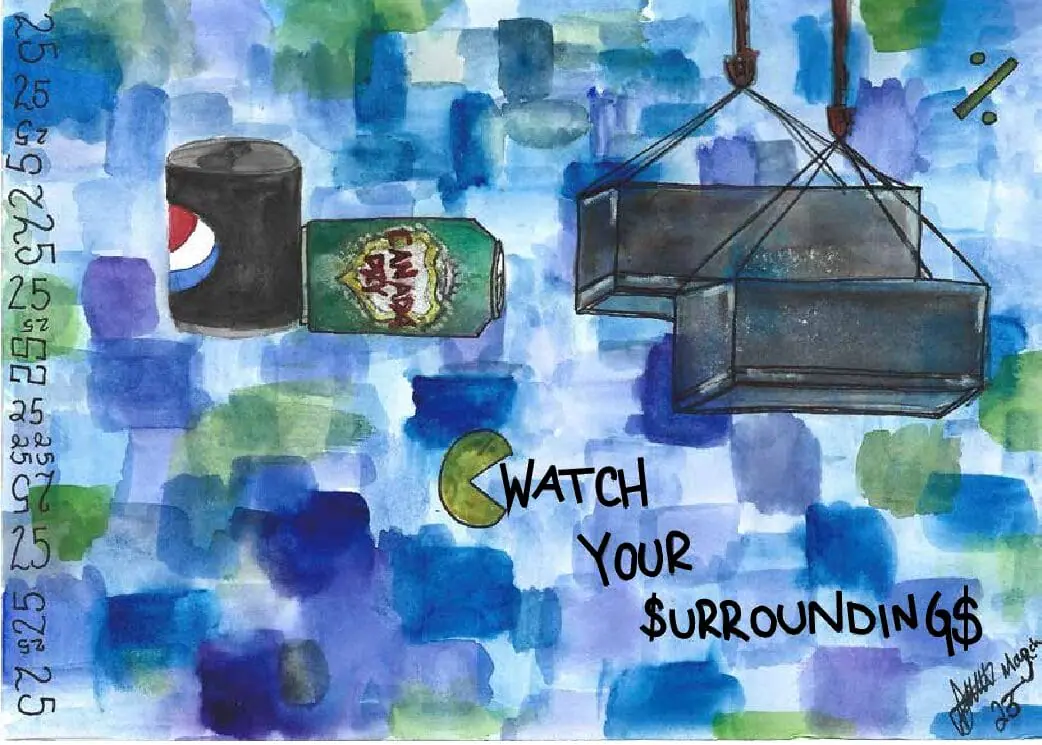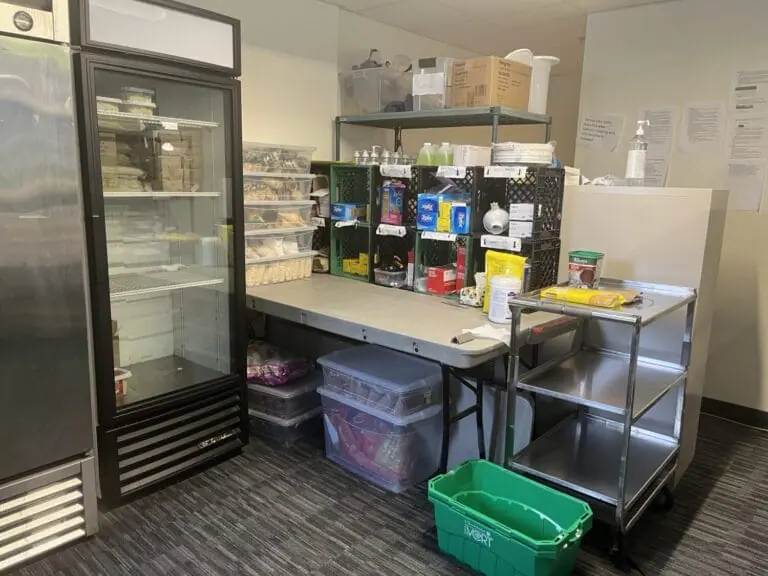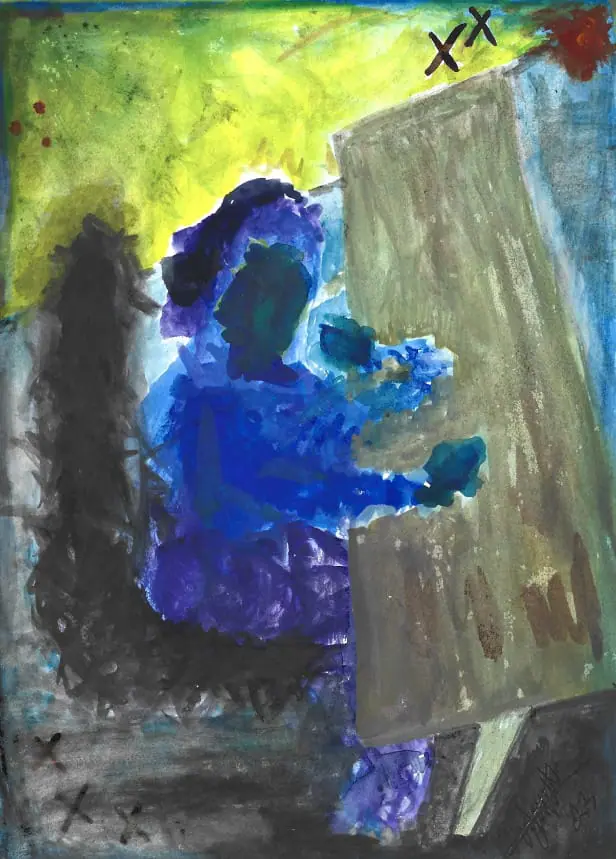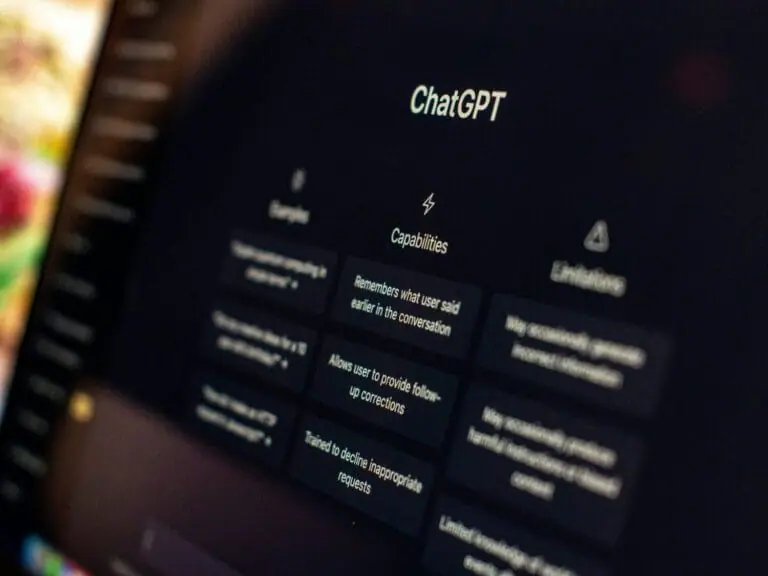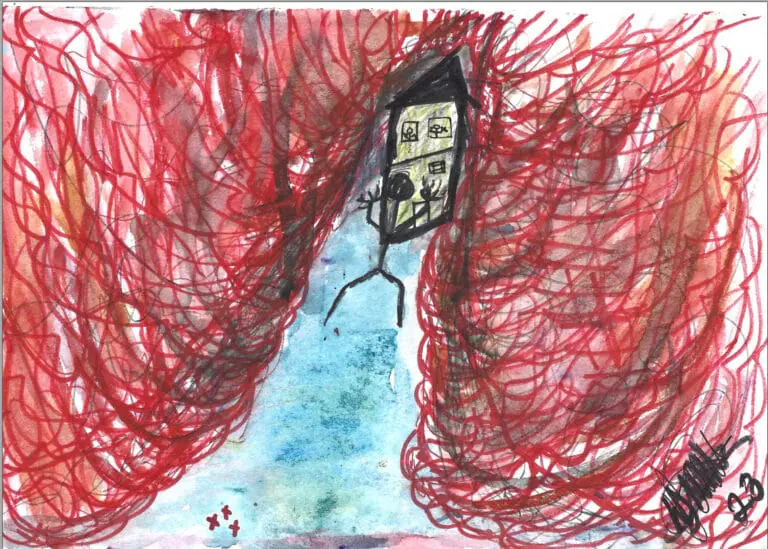I am complicit in the erasure of Palestine and the West’s refusal to admit the war on Gaza is a genocide.
In March 2024, I covered a protest against the genocide happening in Palestine — or sorry, as the media would call it, a march in support of Palestinians — for my second-year reporting class at the University of King’s College. My article on the protest was eventually published in the Dalhousie Gazette, but not before my reporting professor edited the first draft — covering it with edits to make and rules to follow if I wanted to succeed on the assignment. What news consumers probably don’t know is that journalism has its own style guide, just like how that one annoying teacher makes you use Chicago. Every piece of writing from a Canadian publication must follow the Canadian Press style guides. There are thousands of rules, enough to fill two books: The Canadian Press Stylebook and The Canadian Press Caps and Spelling.
My article on the protest was marked up with edits I’d never encountered before. My professor highlighted the word Palestine in the title, commenting that I couldn’t use it outside of quotation marks, and I had to change it to Palestinians. He did the same every time I wrote Palestine in the article. I was fuming and immediately combed through stories from other publications, anxious to prove him wrong.
I told myself I’d read dozens of articles from major news outlets that used the word Palestine. I was wrong. CBC, CTV, the Globe and Mail etc. all only use Palestine when directly quoting someone, when referring to the name of an organization (ex. the Palestine Liberation Organization) or, in the trickiest one to decipher, when referring to Palestine in the context of it filing to become a member of an international organization, like the UN, where it’s official name would be Palestine. In an example from the Globe and Mail, “The United States vetoed a widely backed council resolution on April 18 that would have paved the way for full United Nations membership for Palestine.” I was crestfallen as I begrudgingly changed Palestine to Palestinians, doing my part in the erasure of Palestine as a state and not just a people.
Occasionally, publications use “pro-Palestine” to refer to groups of protestors or “the cause,” but again, it’s tricky, — in these cases, it’s being used to label a group and cause, not refer to a nation.
The original opening sentence of my article was also marked up. What was “Several hundred people gathered on Saturday, March 2 in Victoria Park clutching signs and flags to protest the genocide in Palestine and call for a ceasefire,” became “Several hundred people gathered on Saturday, March 2 in Victoria Park clutching signs and flags to call for a ceasefire and protest Israel’s bombings and attacks in Gaza.”
Other than being made to change Palestine to Palestinians, I also wasn’t allowed to use the word genocide outside of quotation marks. This “rule” made no sense to me. I was taught that in journalistic writing, I should use the most concise and effective word applicable to the situation I’m describing.
The definition of genocide, according to the UN, is “any of the following acts committed with intent to destroy, in whole or in part, a national, ethnical, racial or religious group, as such: Killing members of the group; Causing serious bodily or mental harm to members of the group; Deliberately inflicting on the group conditions of life calculated to bring about its physical destruction in whole or in part; Imposing measures intended to prevent births within the group; Forcibly transferring children of the group to another group.”
I feel 100 per cent confident that the atrocities committed in Palestine fit that definition. According to the UN Special Committee to investigate Israeli practices in November 2024, “Israel’s warfare in Gaza is consistent with the characteristics of genocide, with mass civilian casualties and life-threatening conditions intentionally imposed on Palestinians there.” But, like the Palestine exceptions, the word genocide is only used by the media within quotation marks or when referring to claims specifically made using the word. In an example from CBC, “At the United Nations’ top court in May, Israel strongly denied charges of genocide.”
The media is manipulating you in so many ways you don’t realize. Before encountering this, I never read the news and thought, “Strange they don’t use the words Palestine or genocide here.” Even though the atrocities committed fit perfectly within the UN’s official classification of genocide, news outlets still refuse to use the word and acknowledge “the conflict” as a genocide. Under the UN’s Genocide Convention, genocide “is a crime under international law” which member countries have an obligation “to prevent and to punish.” Admitting there is a genocide in Palestine would mean countries around the world are complicit and legally must stop funding Israel, step in and punish the country for its crimes. The media is the mouthpiece that dictates the narrative of world events. Its influence on the general public and compliance in delivering propaganda cannot be glossed over.
As the news editor of the Gazette, I’m also complicit. It was my choice to publish the final draft I wrote for class in the paper with the omission of Palestine and genocide. I’ve been so conditioned to believe everything must follow the style guide that I thought my article wouldn’t be taken seriously or published if I didn’t follow the rules. I figured a watered-down version of the story I wanted to tell would be better than not being able to tell it.
In hindsight, I could’ve changed it. No one on our editorial team likely would’ve been aware of these “rules” stipulating how to discuss Palestine and genocide because they don’t appear in the Canadian Press style guides. Caps and Spelling mentions nothing, and Stylebook doesn’t say anything about not using Palestine either; it just says, “The National Geographic Atlas of the World is The Canadian Press’s authority for place names outside Canada with exceptions listed below.” Palestine is not included in the exceptions, so technically, there is no written rule for not using the word Palestine. It’s an unspoken rule newsrooms across the country enforce, ultimately engaging in the erasure of Palestine as a nation, which minimizes the responsibility of the international community to defend it. A nation that “doesn’t exist” can’t be defended.
By refusing to say Palestine, the media conditions the public to believe that Palestine isn’t a place, the Palestinians are a group of people. People who will be forced to survive elsewhere if Israel gets its way. By not using the word genocide, the media makes it easier for people around the world to stomach the genocide their countries are complicit in. By framing the “conflict” as a retaliation for Oct. 7 and not a genocide, the media upholds the narrative that Israel and the Western countries funding the genocide are “the good guys” and not those responsible for slaughtering over 62,000 people, displacing millions and destroying the homes and livelihoods of an entire nation.



